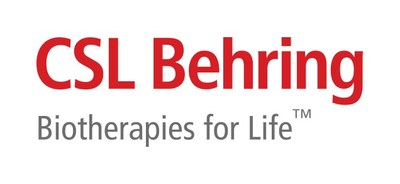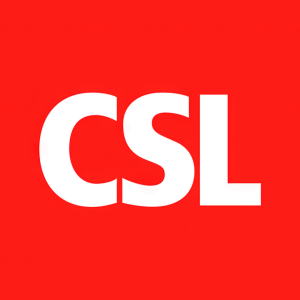Hizentra® (Immune Globulin Subcutaneous [Human] 20% Liquid) To Be Covered Under Medicare Part B Effective July 18, Improving Access and Reducing Out-of-Pocket Costs for CIDP Patients
Rhea-AI Summary
CSL Behring announced the approval of Hizentra for Medicare Part B coverage for Chronic Inflammatory Demyelinating Polyneuropathy (CIDP) effective July 18, 2021. This new coverage will reduce out-of-pocket expenses for patients, including costs for self-infusion pumps, supplies, and training. Previously covered under Medicare Part D, patients faced higher costs. The decision simplifies access for physicians as no prior authorization is needed, enhancing patient access to treatment options and aligning with CSL's commitment to improving patient care.
Positive
- Medicare Part B coverage of Hizentra will significantly reduce out-of-pocket costs for patients.
- No prior authorization required, simplifying the referral process for physicians.
- Hizentra becomes the only self-infusion treatment for CIDP under the same benefit category as other Ig CIDP treatments.
Negative
- None.
Insights
Analyzing...
KING OF PRUSSIA, Pa., June 8, 2021 /PRNewswire/ -- Global biotherapeutics leader CSL Behring today announced that the Centers for Medicare & Medicaid Services (CMS) has approved Hizentra for coverage under Medicare Part B for the treatment of Chronic Inflammatory Demyelinating Polyneuropathy (CIDP). The new coverage, which is effective for dates of service on or after July 18, 2021, will reduce out-of-pocket costs for patients and includes coverage of the self-infusion pump, supplies, medication and nurse training. Hizentra will be the only self-infusion treatment for CIDP covered under the same benefit category as other Ig CIDP treatment options.
"We believe this decision by CMS is in the best interest of patients and will improve access to Hizentra, which is directly aligned with our purpose and a central part of our promise to patients," said Bob Lojewski, Senior Vice President and General Manager, North America, CSL Behring. "Thanks to CMS, patients will now experience reduced out-of-pocket costs and have better access to a therapy that gives them the flexibility to self-administer their treatment at a time, place and on a schedule that's convenient for them."
People living with CIDP require regular infusions of immune globulin replacement therapy to maintain their health. Prior to the CMS decision to cover Hizentra under Medicare Part B, Hizentra has been covered under Medicare Part D, meaning that many patients experience higher out-of-pocket costs associated with their treatment and certain medical equipment, such as the self-infusion pump. Patients with Medicare Part B and Medigap or supplemental coverage will see a significant reduction in out-of-pocket expenses as compared to Part D with this new coverage.
"A large focus of the GBS|CIDP Foundation International is ensuring that policy decisions reflect the needs of our patient community and we believe decisions like this by CMS are a step in the right direction for the benefit of patients," said Lisa Butler, Executive Director, GBS|CIDP Foundation International. "People with CIDP may face barriers in their day-to-day life, but access to treatment should not be one of them."
The referral process for Hizentra will now be easier for physicians, since no prior authorization will be required. CSL Behring also offers Hizentra ConnectSM, a comprehensive resource center for patients who need assistance applying for Medicare Part B coverage and for physicians who have questions regarding referral to specialty pharmacies, coding and billing, nurse training and financial assistance.
"It is important to have an open dialogue with patients about treatment options," said Jeffrey Allen, M.D., Department of Neurology, Neuromuscular Medicine, University of Minnesota. "Now that Hizentra will have the same Medicare coverage as an IVIg, physicians and patients may be able to more easily find the option that is best for them."
About CIDP
CIDP is a rare autoimmune disorder that affects the peripheral nerves (those outside the brain and spinal cord) and damages the protective covering of the nerves known as the myelin sheath. This may result in numbness or tingling, muscle weakness, fatigue and other symptoms. CIDP effects can worsen over time, leading to significant activity limitations and a decreased quality of life. CIDP can occur at any age and is more common in men than in women. The GBS|CIDP Foundation estimates that approximately 30 percent of CIDP patients progress to wheelchair dependence if not treated. The Foundation also estimates that the incidence of CIDP in the U.S. is as high as two in 100,000 people each year, with the accumulation of cases over time resulting in prevalence as high as nine in 100,000 in some areas.
About Hizentra®
Registered in more than 60 countries, Hizentra is the world's most prescribed subcutaneous immunoglobulin for primary immunodeficiency (PI), with more than 9.3 million exposures worldwide since 2010. It has a proven track record of safety, efficacy, and tolerability. Hizentra was first approved by the U.S. FDA in March 2010 for the treatment of patients with PI and was approved in March 2018 for the treatment of adults with Chronic Inflammatory Demyelinating Polyneuropathy (CIDP) to prevent relapse of neuromuscular disability and impairment. For more information about Hizentra, including the U.S. prescribing information, visit www.hizentra.com.
IMPORTANT SAFETY INFORMATION
Hizentra®, Immune Globulin Subcutaneous (Human),
- Primary immune deficiency (PI) in patients 2 years and older
- Chronic inflammatory demyelinating polyneuropathy (CIDP) in adults
WARNING: Thrombosis (blood clots) can occur with immune globulin products, including Hizentra. Risk factors can include: advanced age, prolonged immobilization, a history of blood clotting or hyperviscosity (blood thickness), use of estrogens, installed vascular catheters, and cardiovascular risk factors.
If you are at high risk of blood clots, your doctor will prescribe Hizentra at the minimum dose and infusion rate practicable and will monitor for signs of clotting events and hyperviscosity. Always drink sufficient fluids before infusing Hizentra.
See your doctor for a full explanation, and the full prescribing information for complete boxed warning.
Treatment with Hizentra might not be possible if your doctor determines you have hyperprolinemia (too much proline in the blood), or are IgA-deficient with antibodies to IgA and a history of hypersensitivity. Tell your doctor if you have previously had a severe allergic reaction (including anaphylaxis) to the administration of human immune globulin. Tell your doctor right away or go to the emergency room if you have hives, trouble breathing, wheezing, dizziness, or fainting. These could be signs of a bad allergic reaction.
Inform your doctor of any medications you are taking, as well as any medical conditions you may have had, especially if you have a history of diseases related to the heart or blood vessels, or have been immobile for some time. Inform your physician if you are pregnant or nursing, or plan to become pregnant.
Infuse Hizentra under your skin only; do not inject into a blood vessel. Self-administer Hizentra only after having been taught to do so by your doctor or other healthcare professional, and having received dosing instructions for treating your condition.
Immediately report to your physician any of the following symptoms, which could be signs of serious adverse reactions to Hizentra:
- Reduced urination, sudden weight gain, or swelling in your legs (possible signs of a kidney problem).
- Pain and/or swelling or discoloration of an arm or leg, unexplained shortness of breath, chest pain or discomfort that worsens on deep breathing, unexplained rapid pulse, or numbness/weakness on one side of the body (possible signs of a blood clot).
- Bad headache with nausea; vomiting; stiff neck; fever; and sensitivity to light (possible signs of meningitis).
- Brown or red urine; rapid heart rate; yellowing of the skin or eyes; chest pains or breathing trouble; fever over 100°F (possible symptoms of other conditions that require prompt treatment).
Hizentra is made from human blood. The risk of transmission of infectious agents, including viruses and, theoretically, the Creutzfeldt-Jakob disease (CJD) agent and its variant (vCJD), cannot be completely eliminated.
The most common side effects in the clinical trials for Hizentra include redness, swelling, itching, and/or bruising at the infusion site; headache; chest, joint or back pain; diarrhea; tiredness; cough; rash; itching; fever, nausea, and vomiting. These are not the only side effects possible. Tell your doctor about any side effect that bothers you or does not go away.
Before receiving any vaccine, tell immunizing physician if you have had recent therapy with Hizentra, as effectiveness of the vaccine could be compromised.
Please see full prescribing information for Hizentra, including boxed warning and the patient product information.
You are encouraged to report negative side effects of prescription drugs to the FDA. Visit www.fda.gov/medwatch, or call 1-800-FDA-1088.
You can also report side effects to CSL Behring's Pharmacovigilance Department at 1-866-915-6958.
About CSL Behring
CSL Behring is a global biotherapeutics leader driven by its promise to save lives. Focused on serving patients' needs by using the latest technologies, the company develops and delivers innovative therapies that are used to treat coagulation disorders, primary immune deficiencies, hereditary angioedema, respiratory disease, and neurological disorders. The company's products are also used in cardiac surgery, burn treatment and to prevent hemolytic disease of the newborn.
CSL Behring operates one of the world's largest plasma collection networks, CSL Plasma. The parent company, CSL Limited (ASX:CSL;USOTC:CSLLY), headquartered in Melbourne, Australia, employs more than 27,000 people worldwide, and delivers its life-saving therapies to people in more than 100 countries. For inspiring stories about the promise of biotechnology, visit Vita at CSLBehring.com/Vita and follow us on Twitter.com/CSLBehring.
Media Contact:
Natalie de Vane, Corporate Communications, CSL Behring
Email: Natalie.deVane@CSLBehring.com
Phone: (610) 999-8756
![]() View original content to download multimedia:http://www.prnewswire.com/news-releases/hizentra-immune-globulin-subcutaneous-human-20-liquid-to-be-covered-under-medicare-part-b-effective-july-18-improving-access-and-reducing-out-of-pocket-costs-for-cidp-patients-301307264.html
View original content to download multimedia:http://www.prnewswire.com/news-releases/hizentra-immune-globulin-subcutaneous-human-20-liquid-to-be-covered-under-medicare-part-b-effective-july-18-improving-access-and-reducing-out-of-pocket-costs-for-cidp-patients-301307264.html
SOURCE CSL Behring







